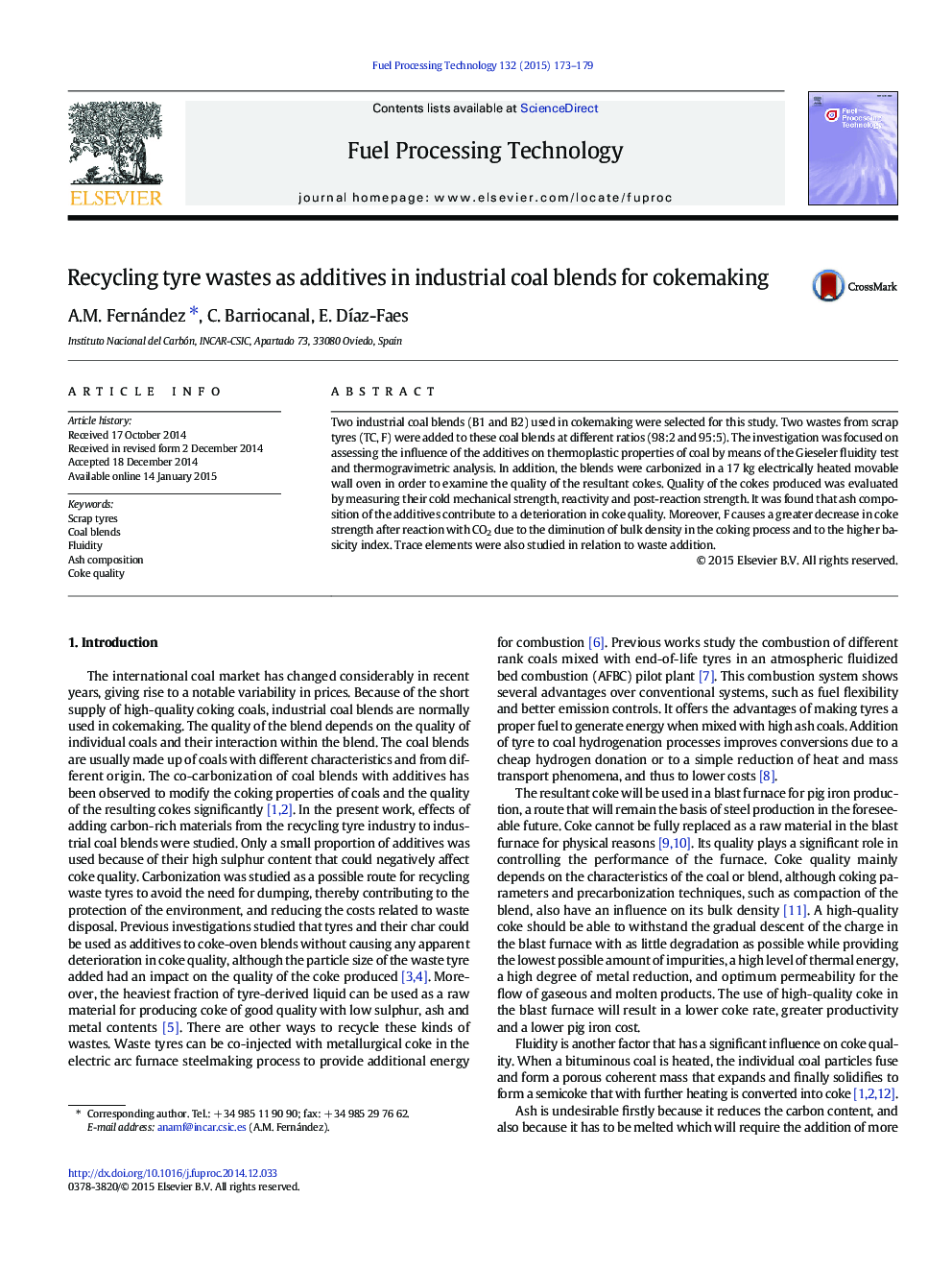| Article ID | Journal | Published Year | Pages | File Type |
|---|---|---|---|---|
| 209605 | Fuel Processing Technology | 2015 | 7 Pages |
•Co-carbonizations of industrial coal blends and two tyre wastes were carried out.•Tyre wastes have a deleterious effect on coal fluidity.•The two wastes differ in their influence on coke quality.•Fibres reduce bulk density and cause a greater increase in coke basicity index.
Two industrial coal blends (B1 and B2) used in cokemaking were selected for this study. Two wastes from scrap tyres (TC, F) were added to these coal blends at different ratios (98:2 and 95:5). The investigation was focused on assessing the influence of the additives on thermoplastic properties of coal by means of the Gieseler fluidity test and thermogravimetric analysis. In addition, the blends were carbonized in a 17 kg electrically heated movable wall oven in order to examine the quality of the resultant cokes. Quality of the cokes produced was evaluated by measuring their cold mechanical strength, reactivity and post-reaction strength. It was found that ash composition of the additives contribute to a deterioration in coke quality. Moreover, F causes a greater decrease in coke strength after reaction with CO2 due to the diminution of bulk density in the coking process and to the higher basicity index. Trace elements were also studied in relation to waste addition.
Graphical abstractFigure optionsDownload full-size imageDownload as PowerPoint slide
